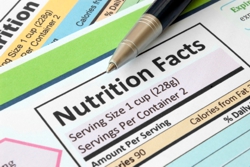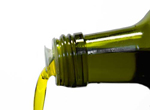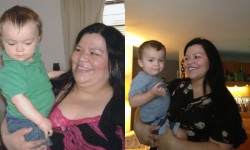 It is a capital mistake to theorize before one has data. ~ Arthur Conan Doyle, Sr.
It is a capital mistake to theorize before one has data. ~ Arthur Conan Doyle, Sr.
Back in early 2009, there was a group of HTA Boot Camp members who were having issues stabilizing. No matter what a fellow admin and I tried to do, we could NOT figure out why.
After weeks of collecting data, we figured out that the common denominator was either one of two things: It was the flavored coffee people were drinking, or the cream that they put in it.
We immediately dismissed the cream as the culprit. After all, we were right smack dab in the middle of a high fat experiment and cream is good for you. So, we decided it had to be the flavored coffee.
Convincing this group to stick to unflavored coffee seemed to curtail the problems with stabilizing for a bit, but not as much as I would have liked to have seen.
Almost a year later, I was still collecting data, doing research, and wondering why there was still an issue with cream and other dairy products. After all, these products help us reach the fat numbers we need to stabilize.
Like a lightning bolt, one morning it hit me. I was surfing the net, like I generally do in the morning, and I came across one sentence on a website about MSG. I saw the word “carrageenan” in a sentence:
Even if a manufacturer tells you there is no MSG in a product, there may be autolyzed yeast, hydrolyzed pea protein, carrageenan, sodium caseinate, enzymes, and a whole slew of other ingredients that contain or create processed free glutamic acid (MSG) during manufacture.
I had heard of everything in that sentence except “carrageenan,” so proceeded to look it up. I was quite honestly dismayed when I found out what it is, what it does, and where it is found in foods.
MSG is counterproductive, not only to your health, but to your weight loss efforts, as well. This ingredient is used mostly as a thickening agent, and is often found in dairy products. Like the cream. Ah ha!
I immediately made this announcement to my clients and to the Boot Camp members. It spread around the site like wildfire with amazing results. People who were doing everything right were still having issues with stabilizing because of their intolerance to MSG. Consuming dairy products that contain carrageenan was causing them to fight an uphill battle.
When they cut the dairy products that contained carrageenan, their stabilization improved.
How does this relate to being dedicated to data?
In oh so many ways! ::giggle::
- We would not have known to narrow down the culprit to cream and coffee had we not spent weeks recording data on what was working and what wasn’t working with the group we were focused on.
- We had devised a way, albeit sloppy, to record that data so that we could make an intelligent decision about what the culprit was.
- I kept that data and watched the trends, knowing that even though there was some movement with our original explanation, something was missing. I didn’t give up looking.
- When I learned the new information, I added it to the data that I already had. Then, I tested a small group, and later a larger group. I finally concluded that choosing dairy products that do not contain carrageenan will help you stabilize.
Having data is super important to your weight control journey. Without data, you cannot make a determination on which way is the most beneficial direction for you to go in.
Data Collection
The sole purpose of data collection is to gather information to keep on record so that you can make decisions about important issues, and then pass that information to others.
Data collection usually involves 3 steps:
Pre-collection: These are your goals, your targets, the definition of the data, and the methods of collecting it.
Collection: This is the actual collection of the data.
Sorting the information: This is where you make sense of the data you collected.
Pre-collection activities are the most crucial steps in the process. This is where you define your goals so that you know what to look for and how to measure the progress. This is the research phase.
Let’s say your goal is to weigh 128 pounds and fit in a size 6 dress or pants. To get to that weight, you must figure out how to get there (a diet), but then you must decide which diet works best for you (The hCG Protocol).
Now you need a way to measure data. In the data collection process, you need a baseline and a target. These two things will help you decide what is working or what needs improvement.
- Choosing a healthy menu is the key to successful progress. While you are on The hCG Protocol, you will discover what foods work best for you. You will start collecting menus and noticing how the foods relate to your losses. If those losses can be tweaked to get better, then figure out if that menu can be used two, three or four days in a row. Or maybe you need to rotate it? Does taking a break of 3 weeks work better for you, or just a 10 day break? Does adding fats to your menu work better for you, or do you make more progress when you stick to pure protocol? Does your body need 500 calories exactly, or does it work better with fewer? Or with more?
- The scale will become your best friend or your worst enemy. I challenge you to consider the scale as just a data collecting device. Use it as a tool rather than a weapon. It’s not there to tell you if you have been bad or good. Its sole purpose is to give you data about whether the food you ate the day before was productive or counterproductive to your goals. And sometimes, it lies. ::giggle:: The tape measure is a much better guide, and should be used religiously when you are on the active portion of weight loss.
- Pictures tell a story. I recommend you use them consistently. And do me a favor, have a trusted friend look at your pictures instead of using yourself as a guide to knowing whether or not things are happening. We are sometimes not the best data collectors when it comes to pictures of ourselves.
To truly see day-to-day results, I highly recommend keeping the data on paper or digitally. Don’t try to remember it in your head! ::giggle::
Every person is as unique as a snowflake. What works for you will not necessarily work for another. Your job is to use the information that countless others used before you (the data), and tweak it to maximize your losses and strengthen your stabilization.
What is your favorite form of data collection for your weight control journey?
















Excellent article Biz! Thanks for sharing.
Thanks for stopping by Renee!!!